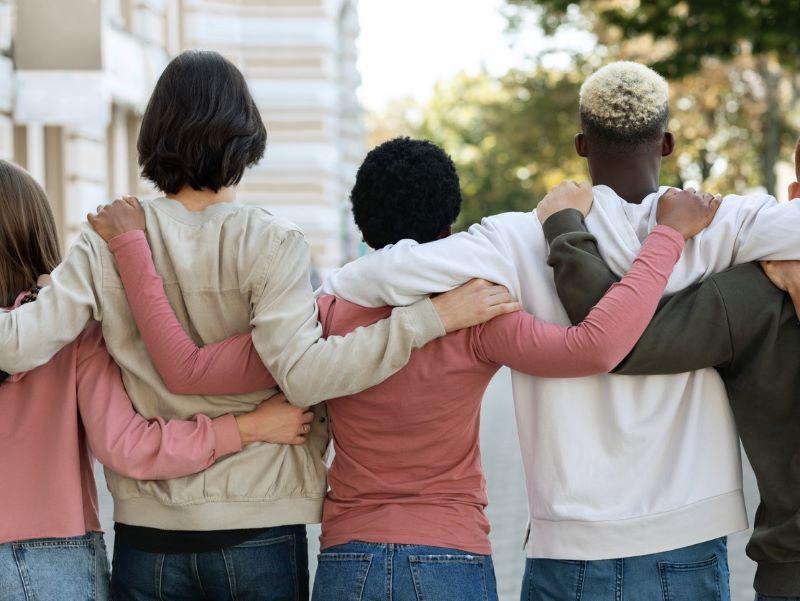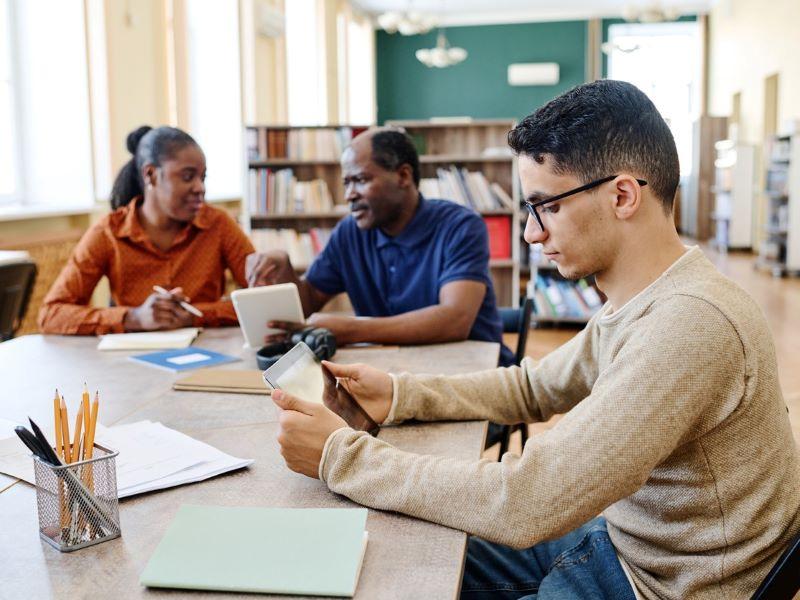“We call upon our friends and colleagues around the world to resist the ongoing campaign of scholasticide in occupied Palestine, to work alongside us in rebuilding our demolished universities, and to refuse all plans seeking to bypass, erase, or weaken the integrity of our academic institutions.”
– Unified emergency statement by Palestinian academics and administrators of Gaza universities (Emergency Committee of Universities in Gaza)
Higher education in Gaza today exists under conditions of scholasticide – the intentional and systematic destruction of educational life and institutions by Israel. This includes the bombing of all 12 of Gaza’s universities, the widespread destruction of its schools, the mass killing of students, university staff, and faculty and the deliberate starvation of those who have managed to survive.
Many UK-based scholars have condemned scholasticide, amplified Palestinian voices and produced important reports. Yet few have answered Gazan scholars’ calls for material solidarity – concrete actions that give recognition and visibility to Palestinian higher-education institutions and scholars, and that facilitate collaborative knowledge-making with them through partnerships.
Our institution’s Centre for Comparative and International Research in Education (CIRE) established the Gaza Education Research Virtual Fellowship (GERVF) in direct response to the Emergency Committee of Universities in Gaza’s appeal for academic solidarity and following guidance outlined in a Friends of Palestinian Universities report on higher education partnerships with Palestine.
The first of a two-part resource provides reflections from three Gaza virtual research fellows and two UK-based scholars, along with a practical outline of the fellowship’s design, development, and early implementation insights.
What does a virtual fellowship look like?
Virtual fellowships are formal visiting academic positions conducted remotely. They require fellows to work on a research project, write up research output, and build new research connections and collaborations that benefit both the visiting fellow and the hosting institution. GERVF offers selected fellows an honorarium to support them in conducting new research or advancing existing projects at a time when education research funding in Gaza is in essence non-existent.
The Emergency Committee of Universities in Gaza has outlined several key priority areas for higher education in Gaza. This list includes the need for collaborative fellowships with international institutions that support Gaza faculty to remain at their home universities in Gaza. As Gaza continues to face scholasticide, these fellowship models offer adaptable frameworks for UK institutions to engage with and support Palestinian academics and institutions.
How to design a virtual fellowship with scholars in mind
Formats for virtual fellowships, including both what is offered and how, should be responsive to the specific context and constraints the scholars are working with. This requires ongoing dialogue with institutional partners and local experts and close attention to research ethics.
GERVF fellows gain full digital access to our institution’s library and online resources and platforms, a university email and are paired with a “critical friend” – a peer who offers academic support. They also receive professional development opportunities and participate in group seminars. They participate in four workshops and a final seminar, and each produces a research output in a format of their choice, whether that be academic, creative or journalistic. This allows them to advance their work despite the profound challenges they face.
We regularly communicate and meet using a combination of text- and video-based platforms, and adapt these modes based on the availability of internet and phone reception. We provide practical support during workshops through feedback on research project design and methodologies, reading and editing each other’s writing and engaging in dialogue in ways that promote a mutual exchange of knowledge and co-learning opportunities.
Furthermore, the fellowship aims to establish and sustain equitable partnerships. Fellows are co-designers of the fellowship, and we consult them in key decisions throughout the process. This ensures that the opportunity is responsive to their needs and interests and that it can adapt as circumstances in Gaza change. We recommend holding pre-fellowship interviews or group meetings to identify the fellows’ priorities and coordinating ongoing check-ins throughout the programme to ensure fellows’ perspectives are guiding activities.
- What can universities do to improve routes into HE for displaced academics?
- Education for humanity: designing learner-centric solutions for refugee students
- Increasing access to higher education for refugees through digital learning
The first cohort of fellows includes three scholars who are each advancing needed and timely research projects. Below are initial reflections one month into the fellowship:
Ahmed K. Junina of Al-Aqsa University, researching ‘knowlash’ and the crisis of learning:
“Early in the war, after witnessing the devastating impact of scholasticide, I felt utterly alone as an educator and researcher, as if I were a target. However, this fellowship, a unique model of scholarly collaboration, has given me a sense of empowerment and support, both academically and psychologically. It’s truly a lifeline for researchers like me, fighting to keep our voices heard despite the war and the destruction of our academic institutions. It also reflects the incredible solidarity and support from our fellow academics in the UK, which feels like a vital boost during these challenging times.”
Munawwar A. Najim of the Islamic University of Gaza, researching the experiences of displaced female students:
“Palestinian academics face isolation, loss of institutional support and the erasure of academic life. This fellowship breaks that isolation. It offers not only material support but also recognition, validation and a sense of academic belonging. It affirms that Palestinian scholars have a voice and a role in global academic discourse, even under siege. At a time when many institutions have remained silent, this initiative stands as a rare example of solidarity in action. It came at a moment when everything else in my life as an academic had collapsed.”
How working with the right partners can move the needle
We worked closely with the three universities that form the Gaza Emergency Committee, especially the three Gazan scholars on the education subcommittee, to design the fellowship. We held planning meetings with them and with Friends of Palestinian Universities, a UK-based charity, during the project design phase and signed letters of intent. These reinforced the importance of higher education institutional partnerships, and in our case, the essential role of the Gaza Emergency Committee.
Established community-based intermediaries can help build trust, provide essential guidance, and support coordination and communication efforts, especially when working on education in emergency settings. This is why our collaboration with Friends of Palestinian Universities, which was already working with universities across Gaza, was particularly valuable in this process. Global networks such as the Inter-agency Network for Education in Emergencies (INEE) include more than 20,000 members representing 4,000 organisations and can be a great place to identify and build partnerships.
Institutional partnerships benefit from clear communication and ongoing dialogue throughout the project, along with transparency around funding, benefits, responsibilities and future collaboration opportunities.
We hope that by sharing the design and early insights of the GERVF, we can encourage other institutions to apply similar models of solidarity that help support academics whose work is under threat. Part two will explore lessons learned from the fellowship.
Ahmed Kamal Junina is an assistant professor of applied linguistics and head of the English department at Al-Aqsa University in Gaza; Basma Hajir is a lecturer in education and social justice at the University of Bristol; Munawwar Najim is an associate professor of education at the Islamic University of Gaza; William W. McInerney is a research consultant.
If you would like advice and insight from academics and university staff delivered direct to your inbox each week, sign up for the Campus newsletter.




comment